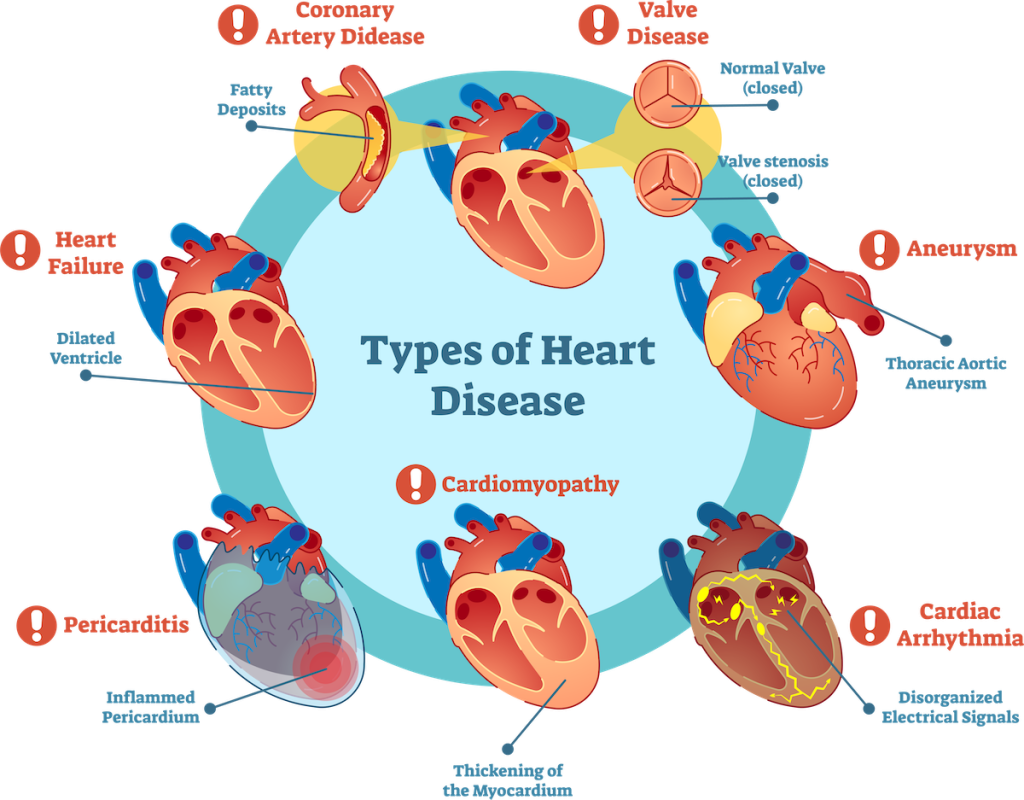Heart Awareness Month
Posted on February 1st, 2022 by Andries Lodder
By Daniel Sauer
February is Heart Awareness Month!
Here is some information on getting a stronger, healthier heart!
Over the past 4 decades, numerous scientific reports have examined the relationships between physical activity, physical fitness, and cardiovascular health. Expert panels, convened by organizations such as the Centres for Disease Control and Prevention (CDC), the American College of Sports Medicine (ACSM), and the American Heart Association (AHA) have established that approximately 1 in 4 deaths annually is a result of heart disease every year. The most common heart diseases are: Myocardial Infarction (Heart Attack), Stroke and Coronary Artery Disease.
Some of the main risk factors for heart diseases are: High Blood Pressure, High Cholesterol, Stress, Smoking, Hereditary factors, and Sedentary lifestyles. So, you may ask: How do I combat this and live a healthier lifestyle?
Exercise. Exercise is how one can manage and prevent heart conditions from developing or getting worse. We know regular exercise strengthens muscles, but it also helps the heart do a better job of pumping blood throughout the body. After all, your heart is a muscle!
- Lower blood pressure. A healthy heart pushes out more blood with each beat, enabling it to function more efficiently. This decreases stress on the heart and surrounding arteries, potentially reducing blood pressure. If you have high blood pressure, cardiovascular exercise may help lower it. If you don’t have high blood pressure, exercise may help prevent it from rising as you age.
- Improve blood flow. Regular cardio-based physical activity enables the heart to achieve improved blood flow in the small vessels around it, where blockages of fatty deposits can build over time. Better circulation in these areas may prevent heart attacks. Evidence even shows that exercise can cause the body to create more physical connections between these small blood vessels, meaning the blood has more ways to travel to where it needs to go.
- Improve workout efficiency. As you begin a new workout routine that includes cardio activity, it may take a while for your body to adjust to the faster pace. But the more routine exercise becomes, the quicker your body pulls needed oxygen from your blood during workouts. Regular cardiovascular training also allows your body to recover quicker after exercise.
- Lower cholesterol. Many studies show that exercise is linked to healthy improvements in cholesterol, such as increasing the amount of healthy HDL cholesterol and lowering bad LDL cholesterol by as much as 10 percent.
- Decrease risk of heart disease, stroke and diabetes. Studies show regular exercise helps reduce the risk of coronary heart disease as much as 21 percent for men and 29 percent for women. Additionally, active people have 20 percent less chance of stroke. Regular exercise also helps keep blood sugar levels in a healthy range and, in turn, helps lower risk for prediabetes and type 2 diabetes.
- Promote other heart-healthy habits. According to the American Heart Association, regular exercise can help you maintain a healthy weight, and make better nutritional choices.
- Reduce Stress. Exercise has proven to release hormones and lower one’s level of stress. This in turn, better manages several other risk factors that the average individual experiences, as well as improves one’s sleep and productivity.
For any questions, or tips, or assistance in improving your healthier and better lifestyle, Contact us and book your appointment with our biokineticists.
Tweet

